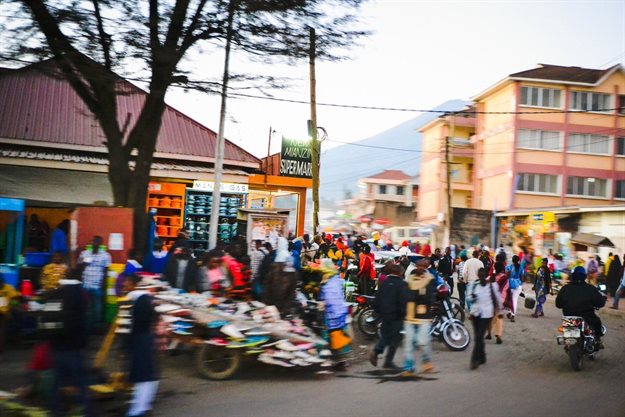Africa Day (25 May) is an annual opportunity to reflect on the progress we have made in driving socio-economic growth and development. But this year, it is a more sombre occasion as we try to understand the human and economic cost of the Covid-19 pandemic.
At the time of writing, there were around 95,000 confirmed Covid-19 cases in Africa and nearly 3,000 deaths, with the numbers rising exponentially. Apart from the tragic loss of life, Covid-19 could be a serious economic setback. The IMF forecasts that Sub-Saharan Africa’s GDP for 2020 will shrink 1.6% – a 5.2% drop from earlier forecasts – and that per capita income will drop an average 3.9%.
However, let’s not allow the very real challenges of the virus overshadow the progress Africa has made.
Dr Mamphela Ramphele 17 Apr 2020 Significant steps forward
Our continent has been one of the fastest growing regions in the world for the past 20 years. We have taken significant steps forward in reducing poverty, improving health, and growing the economy. I am confident Africa will remain resilient in this crisis, just as it was during the global financial crisis.
Thriving after the pandemic will test our leaders and our resolve. A survey from the African Management Institute found that 87% of small businesses in Africa fear they may not survive the Covid-19 crisis. Each of these small businesses represents a livelihood for at least one family and a contribution to economic output and tax receipts.
Powering post-Covid-19 revival
More than that, small businesses are the beating heart of every community, providing much-needed jobs, services and opportunities. As governments, NPOs, big business and multilateral institutions plan for economic recovery, they should bear in mind that small businesses will continue to power the post-Covid-19 revival.
This will require extraordinary levels of cooperation between everyone in the ecosystem – we ideally need to see a range of fiscal measures, policy changes, and training and development interventions to help small businesses through this rocky patch. Many African leaders have responded with speed, compassion and agility to the need to support people and businesses with fiscal stimulus, but more action is needed.
African Continental Free Trade Area agreement
The overwhelmingly good news is that Africa was already moving in a positive direction before the virus hit. For example, the African Continental Free Trade Area agreement promises to help drive higher levels of intracontinental trade. Rather than letting Covid-19 slow down implementation of this agreement, let’s continue to pick up the pace and create a more open trading environment for all African states.
We also call upon governments to speed up their efforts to make it easier to do business. This is key not only in the response to Covid-19, but also in diversifying economies beyond agriculture and mining to innovative sectors like media, IT and fintech. This can help African countries become more competitive, create jobs and grow the tax base.
António Guterres 21 May 2020 True grit, community spirit and flexibility
It’s heartening to see how African businesses have shown true grit, community spirit and flexibility in their response to Covid-19. Whether it’s Kenyan startups producing personal protection equipment using 3D printing, or South African craft breweries using their equipment to make soup for the poor, African businesses are banding together, mobilising to fight the pandemic with the goal of emerging stronger from the crisis.
Businesses around the continent have moved fast to use the cloud to enable people to work from home and to serve their customers. No longer can we simply talk about digital; we must get on with it and rethink how we do things – how we let people work from home to save rental costs and improve quality of life, how we offer more convenient customer service, and how we run more agile businesses.
At Sage, we believe in the African continent and what it has to offer the rest of the world. We are committed to supporting the region’s entrepreneurs and investing in this vibrant landscape. Covid-19 may temporarily slow Africa’s growth, but the continent’s momentum is unstoppable. I can’t wait to see what’s next.













